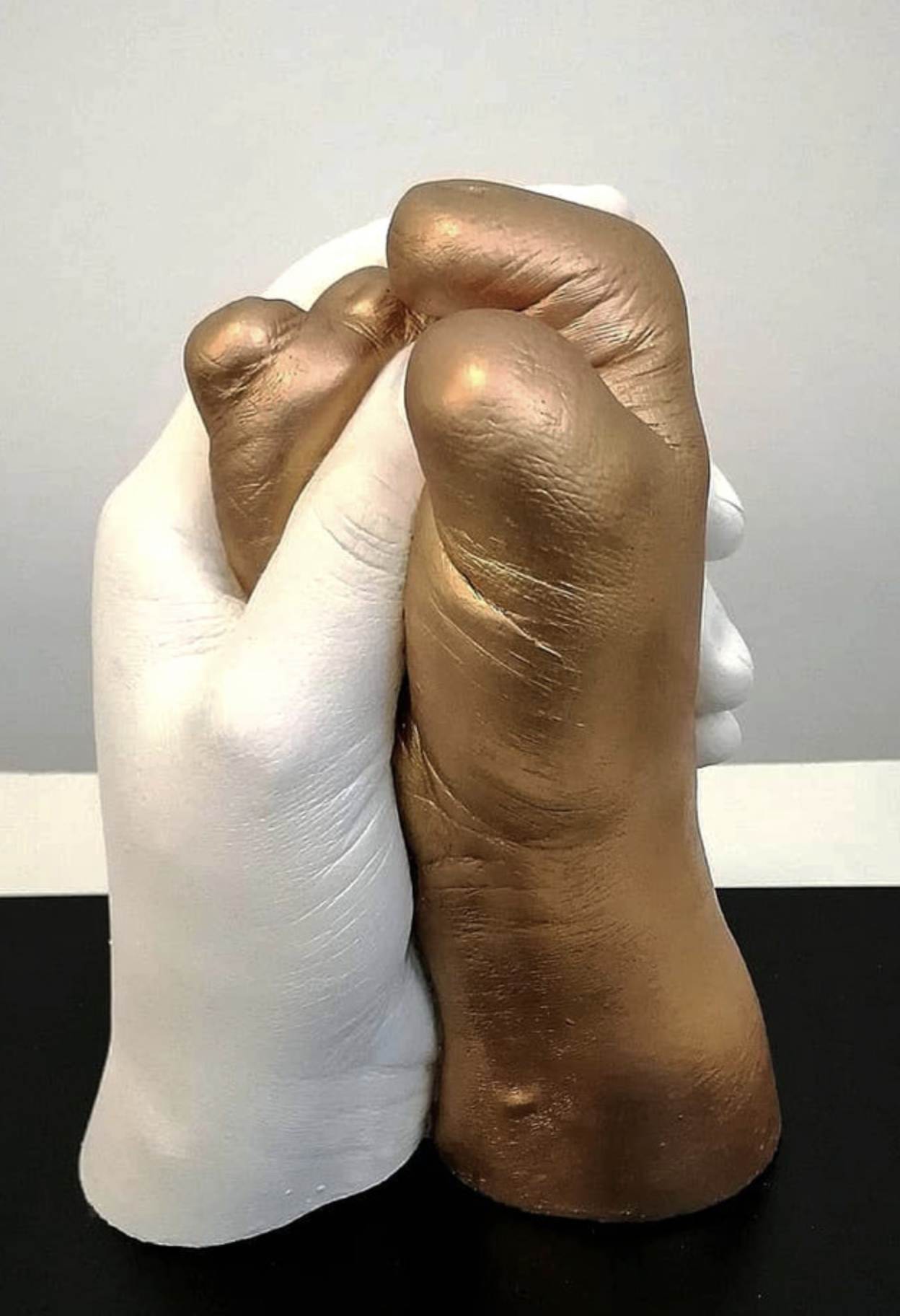
Dear Reader
There are two ways disability is erased from history. One is to completely ignore the person with a disability, their presence and contribution. The other is to erase all traces of the person’s disability. That’s the situation with Italian cultural critic and politician Antonio Gramsci who is featured below.
The sculpture that begins this issue is by Merissa Hylton, a UK based artist, sculptor, painter, potter and textile artist. ‘I Am Here – Acceptance‘ is her exploration of the inter-sectional relationship between race, gender and disability. It also represents Hylton’s acceptance of her disability by redirecting the gaze from the first person to the third person. Hylton has Amniotic Band Syndrome which means she doesn’t have fingers on her right hand.
This issue also features Scottish mystery writer Ian Rankin, playwright and Paralympian Lynn Manning, and fashion model Jillian Mercado.
Enjoy – Al
PS: check out the new podcast series The Power of Disability. It’s a partnership with Simon Fraser University’s Below the Radar podcast. My first guest is Victoria Maxwell who describes herself as the “bi-polar princess.”
This week in history ...
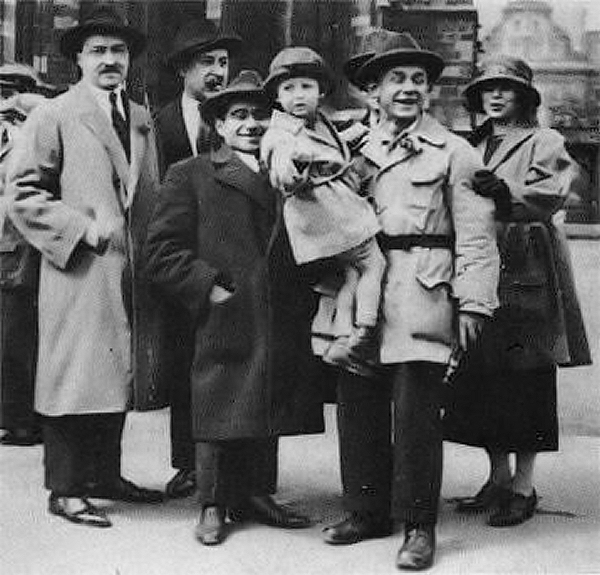
On April 27 Antonio Gramsci Italian theoretician, philosopher and politician died (1937). The phrase most commonly associated with him is: “Pessimism of the intellect, optimism of the will.” Gramsci had tuberculosis of the spine when he was a child. This caused his spine to curve and resulted in his short stature. That part of his being is seldom acknowledged. Books do not reference his disability. Photographs only show his head and shoulders. The picture above is one of the few that captures his full presence. He is the one in the centre of the picture, smiling and standing beside the man holding a child.
Gramsci’s ideas are alive today. They are used by community organizers and adult educators. Paulo Freire’s consciousness raising, liberation theology and participatory action research are three examples. Gramsci’s belief that every aspect of life is political is similar to the feminist slogan, “the person is political.” Distinguished disability scholar Sir Tom Shakespeare considers Gramsci, “a disabled role model.”
Everyone is an intellectual, Gramsci asserted. “Educate yourself because we need all your intelligence,” he wrote. “Stir yourselves because we’ll need all your enthusiasm. Organize yourselves because we’ll need all your strength.”
Gramsci was one of the founders of the Italian Communist Party. Despite being an elected member of Parliament he was imprisoned by Mussolini’s fascists. At his trial the prosecutor argued, “We must stop his brain from working for 20 years.” Despite rigorous censorship he filled 30 notebooks and wrote 3,000 pages of history and analysis during his imprisonment. They are published in his three-volume Prison Notebooks.
Gramsci was released from prison in 1937 because of ill health and died shortly after. “Nothing is lost if belief and consciousness remain intact, if bodies surrender, but not souls,” he wrote.
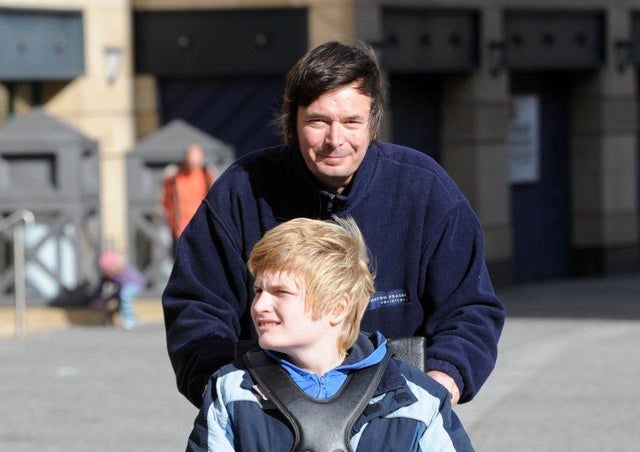
On April 28 Scottish mystery writer Ian Rankin was born (1960). His Inspector Rebus detective series is so popular it accounts for more than 10% of all crime books sold in the UK. Described as ‘Tartan Noir,’ his books capture the dark, gritty, shadowy, criminal underworld of urban Scotland. In real life, Rankin believes the streets of Edinburgh are a crime against disabled people. The broken pavement, cobblestones and narrow walkways are a hazard for wheelchair users including his son Kit he says.
Kit was born with Angelman Syndrome, a genetic disorder that affects the nervous system. Nowadays Rankin is using his celebrity to speak out against the discrimination experienced by disabled people during the pandemic. They are being kept in isolation away from family and are a low priority to be vaccinated.
“The disabled don’t have a voice,” he told an interviewer. “They’ve never had a voice and laterally we’re starting to hear their representatives, their family and friends, yelling. Sometimes it needs someone with a public voice to come forward and then people take notice.”
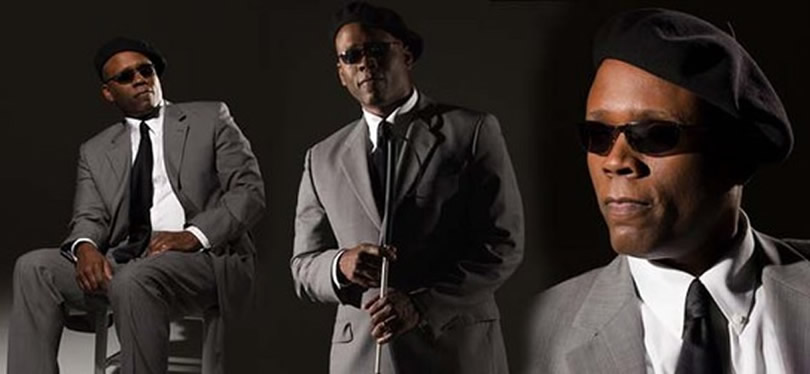
April 30 is the birthday of Lynn Manning American playwright, poet, actor and Paralympian (1955). Manning and his eight siblings grew up in foster care. He lived in six foster homes and attended nine schools. When he was twenty-three he was shot in the face and blinded after a disagreement during a pinball tournament. His assailant was never found. “I sincerely hope he gets what’s coming to him, but I don’t dwell much on it,” he told a newspaper reporter. “Some say it’s important for a victim to get closure, but I think if you need that sort of thing to move forward, you’re still a victim.”
Manning excelled at judo, becoming a world champion. He won a silver medal at the 1992 Barcelona games. He is best known for his autobiographical work “Weights” which explored the complexities of life as a blind, African-American man. The title comes from Manning’s mother’s reaction to the news of his blindness. She said, “I couldn’t be so strong.” He replied, “you have to lift weights.”
In his poem “The Magic Wand,” Manning lists the prejudices he encountered daily:
Quick-change artist extraordinaire,
I whip out my folded cane
and change from Black Man to “blind man”
with a flick of my wrist.
From God-gifted wizard of round ball
Dominating backboards across America
To God-gifted idiot savant
Pounding out chart busters on a cockeyed whim;
From sociopathic gangbanger with death for eyes
To all-seeing soul with saintly spirit …
Manning died of liver cancer on August 3, 2015. “My final form is never of my choosing,” he wrote. “I only wield the wand; you are the magician.”

April 30 is the birthday of fashion model and actor Jillian Mercado (1987). Mercado has muscular dystrophy. She fell in love with fashion at an early age, (her mother is a seamstress). Fashion was her family. It was where she felt at home. “I was able to express my creativity as “out-there” as I wanted to,” she said. Then the reality hit home that there wasn’t anyone in the fashion industry who looked like her. “I was confused,” she said “because I knew how big my disability community is, yet we were not acknowledged. I got really sad about it until I woke up one morning and I was like “I’m so tired of being tired.” You know that feeling where you’re just like “I’ve had it?”
That’s the reason she founded Black Disabled Creatives. “By showcasing creatives on a global scale, we aim to not only offer an accessible platform for hiring personnel but to help bridge the divide for creatives with disabilities,” she wrote on their website.
Mercado currently stars as the immigration lawyer, Maribel Suarez on, The L Word: Generation Q. “Hopefully my character and role on the show can bring hope and change. I want a dramatic change in the industry.” She says you can’t talk about race and inclusion without including the disability community.
“We all live on one planet and we all need to help each other grow together,” she says.
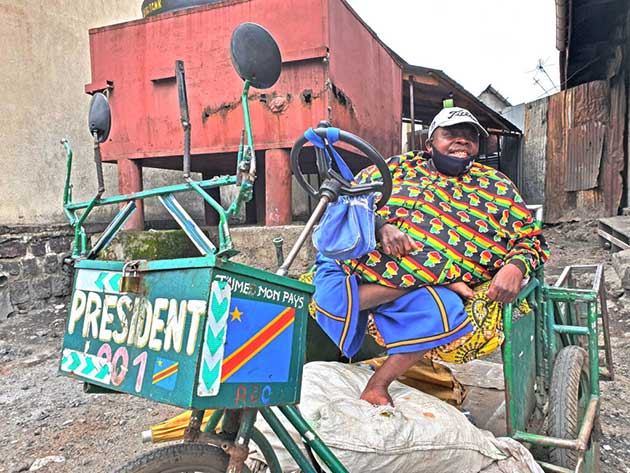 Did you know?
Did you know?
People with disabilities in the Democratic Republic of Congo are dying of starvation. Before Covid they could earn as much as fifteen dollars a day. Today, that amount has dwindled to fifty cents says Jacques Bisimwa Mitima, pictured above. He is President of the Association of People with Physical Disability in his region. People with disabilities do not receive financial support from government in his country. That’s why his group is voluntarily “taxing” themselves to cover medical expenses and funeral costs for those who have no money.
